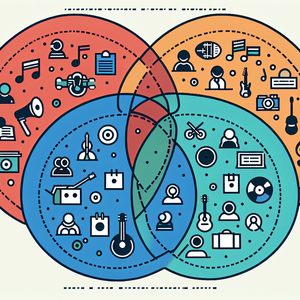Understanding the Layers of Salary in the Gig Economy

Historically, salaries were closely tied to hourly wages or annual contracts, providing employees with a predictable income stream. However, the emergence of the gig economy—characterized by platforms such as Uber, Upwork, and TaskRabbit—has disrupted this model. Gig workers earn on a per-task basis, resulting in income that can vary dramatically week to week or even day to day. This shift towards project-based compensation offers various advantages, including flexibility and autonomy, but simultaneously introduces challenges related to financial stability and planning.
Benefits of Gig Work
One of the most significant advantages of gig work is the flexibility it provides. Workers can set their own schedules, select projects that align with their interests, and work from virtually anywhere. This flexibility is particularly appealing for individuals with other commitments, such as parents, students, or those pursuing side hustles. Furthermore, gig workers often have the opportunity to diversify their income streams by engaging in multiple gigs simultaneously, potentially leading to enhanced overall earnings. For instance, a graphic designer might take on freelance projects, while also driving for a rideshare company during peak hours. This blending of roles not only helps increase income but allows workers to explore various interests and develop skills that may not be utilized in traditional employment settings. Many gig workers report a sense of empowerment from being their own boss, having control over their career trajectories, and the ability to innovate within their roles.
Drawbacks of Gig Work
Despite its allure, gig work is not without significant drawbacks. The most pressing issue is income instability. Unlike traditional employees who receive regular paychecks, gig workers face unpredictable earnings, complicating financial planning. This unpredictability can lead to heightened stress and anxiety, particularly for workers who are unprepared for lean periods. Moreover, gig workers often miss out on benefits typically associated with traditional employment, such as health insurance, retirement plans, and paid time off. This lack of benefits can create financial vulnerabilities, especially during times of illness or emergencies. Additionally, gig workers may experience social isolation, lacking the connections and support systems that often accompany being part of a larger organization.
Psychological Impacts of Fluctuating Income
The psychological effects of fluctuating income can be profound for gig workers. Many individuals tie their self-worth to their earnings, leading to feelings of inadequacy during low-earning periods. This connection between salary and self-esteem can create a negative cycle of stress and anxiety, further impacting productivity and mental health. Research has shown that financial instability can lead to increased levels of anxiety and depression. Gig workers may experience heightened stress due to the pressure of securing work and maintaining a consistent income. Understanding these psychological impacts is crucial for gig workers to develop strategies to cope with the inherent uncertainties of their work.
Tips for Managing Finances in the Gig Economy
1. Create a Budget: Establish a budget that accommodates variable income. Tracking earnings over time can help identify patterns, allowing for more informed spending decisions. 2. Set Aside Savings: Aim to save a portion of your earnings during high-earning periods to cushion against lean times. A savings buffer can provide peace of mind and financial security. 3. Diversify Income Streams: Pursue multiple gigs or side projects to create a more stable income base. Diversification can help mitigate the risks associated with fluctuating earnings. 4. Invest in Financial Education: Take the time to learn about personal finance, budgeting, and investing. Understanding these concepts can empower gig workers to make informed financial decisions. 5. Seek Professional Advice: Consider consulting with a financial advisor who can provide tailored advice based on your unique situation. Professional guidance can be invaluable for navigating complex financial landscapes.
The gig economy has brought about a fundamental shift in how we perceive and structure salary. While this model offers unparalleled flexibility and opportunities for entrepreneurship, it also presents significant challenges, particularly regarding income stability and psychological well-being. By understanding these dynamics and implementing effective financial management strategies, gig workers can navigate the complexities of their earnings and cultivate a more secure and fulfilling work life. As the gig economy continues to evolve, staying informed and adaptable will be crucial for those embracing this new way of working.
Freelance Graphic Designer
Agencies, startups, and individual entrepreneurs
Core Responsibilities
Create visual content for various clients, including logos, websites, and marketing materials.
Collaborate with clients to understand their vision and deliver designs that meet their branding needs.
Manage multiple projects simultaneously while meeting tight deadlines.
Required Skills
Proficiency in design software such as Adobe Creative Suite (Photoshop, Illustrator, InDesign).
Strong portfolio showcasing a range of design styles and projects.
Excellent communication and time management skills.
Rideshare Driver
Uber, Lyft, and other rideshare platforms
Core Responsibilities
Provide safe and efficient transportation to passengers while adhering to traffic laws and regulations.
Maintain a clean and comfortable vehicle for riders, ensuring a pleasant experience.
Utilize navigation apps to determine the best routes and manage time effectively.
Required Skills
Valid driver’s license and clean driving record.
Strong interpersonal skills to engage effectively with passengers.
Basic knowledge of vehicle maintenance and troubleshooting.
Virtual Assistant
Small businesses, entrepreneurs, and remote teams
Core Responsibilities
Assist clients with administrative tasks, including scheduling, email management, and data entry.
Conduct research and prepare reports or presentations as needed.
Provide customer service support through various channels, ensuring client satisfaction.
Required Skills
Proficiency in office software (e.g., Microsoft Office, Google Workspace).
Strong organizational and multitasking abilities.
Excellent written and verbal communication skills.
Content Writer
Digital marketing agencies, blogs, and corporate communications teams
Core Responsibilities
Research and produce high-quality written content on various topics for blogs, websites, and marketing materials.
Collaborate with clients to align content with their brand voice and marketing strategies.
Edit and proofread content to ensure clarity and grammatical accuracy.
Required Skills
Exceptional writing, editing, and proofreading skills.
Familiarity with SEO best practices and keyword optimization.
Ability to write for different audiences and adapt style accordingly.
Social Media Manager
Marketing agencies, retailers, and online brands
Core Responsibilities
Develop and implement social media strategies to enhance brand awareness and engagement.
Create and curate content across various social media platforms, including Facebook, Instagram, and Twitter.
Analyze performance metrics to optimize campaigns and report on results.
Required Skills
Strong understanding of social media trends and best practices.
Proficiency in social media management tools (e.g., Hootsuite, Buffer).
Creative skills for content creation, including graphic design and copywriting.


